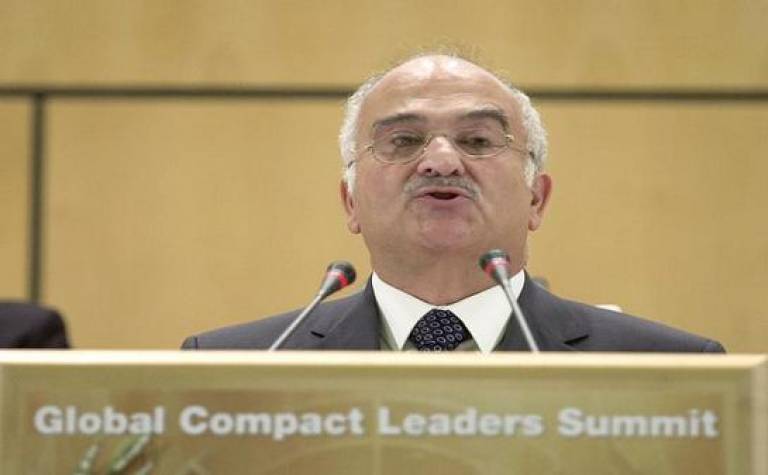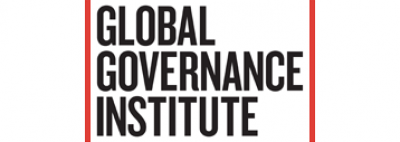Economy for the Common Good
11 February 2015
Diego Isabel introduces the concept of the 'Economy for the Common Good'.

The Economy for the Common Good proposes a simple and revolutionary change in our economic system. It calls for a shift away from a focus on increasing economic profit towards increasing the common good or well-being of the entire population. The model is inspired by the concept that it is a fallacy that the acquisition of wealth alone will contribute to an increased sense of well-being. In order to achieve its goal, the Economy for the Common Good further suggests a change in methodology, shifting from competition - the method used in the current model to increase economic profit - to cooperation.
The concept can be traced to the publication of Christian Felber's book "The Economy for the Common Good" in 2010. Felber's book has been published in six languages - German, French, Italian, Spanish, Polish and Finish - and in June 2015 will be published in English with Zed Books under the title "Change Everything - Creating an Economy for the Common Good". Felber's book and the work of countless activists and volunteers have helped propel the Economy for the Common Good on the world stage as a bonafide social movement. Among various constituents within the movement, Felber's insights are continually being debated, developed with a view to elaborating a practical policy programme.
The idea of putting the common good at the centre of economic activity appears in the preambles and articles of almost every democratic constitution. The international Economy for the Common Good movement demands the actual realization of these constitutional undertakings. In order to facilitate this, several tools have been developed such as the Common Good Matrix for organisations and the Common Good Index for governments. The Common Good Matrix consists of 17 performance indicators which reflect the five main values of the Economy for the Common Good: (1) human dignity, (2) solidarity, (3) ecological sustainability, (4) social justice, and (5) transparency/democracy. The Common Good Matrix is constructed to clearly show which stakeholder groups are affected by which indicator. The stakeholders include suppliers, investors, staff, owners, customers and the social environment.
As of the beginning of 2015, the Economy for the Common Good has active supporters in 32 countries, over 100 local chapters meet regularly at community level, 30 universities are developing different research projects on the theme, more than 1800 companies are applying its values and several local and regional governments in different countries have adopted the Economy for the Common Good as their economic model.
Diego Isabel is specialised in new economics, social and political innovation, sustainable development, corporate social responsibility and business management and has many years of experience working with private companies and public institutions. He is a member of the Economy for the Common Good international movement and author of the book "Yo Soy Tú: Propuesta para una Nueva Sociedad" (Octaedro, 2013). He currently lives in the United Kingdom.
Diego presented at the 'Economy for the Common Good' event which took place on 3rd February 2015 and was organized by the GGREAT Student Committee (MSc GGE) and the team of "Better Economics UCLU", in collaboration with the Global Governance Institute.
 Close
Close


